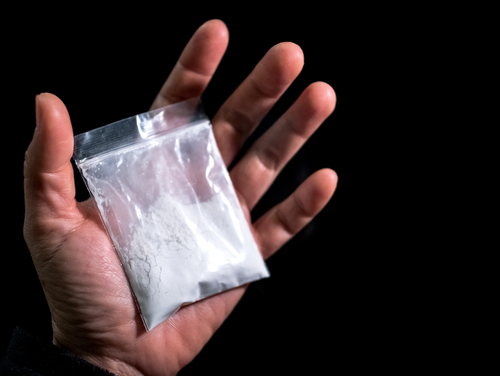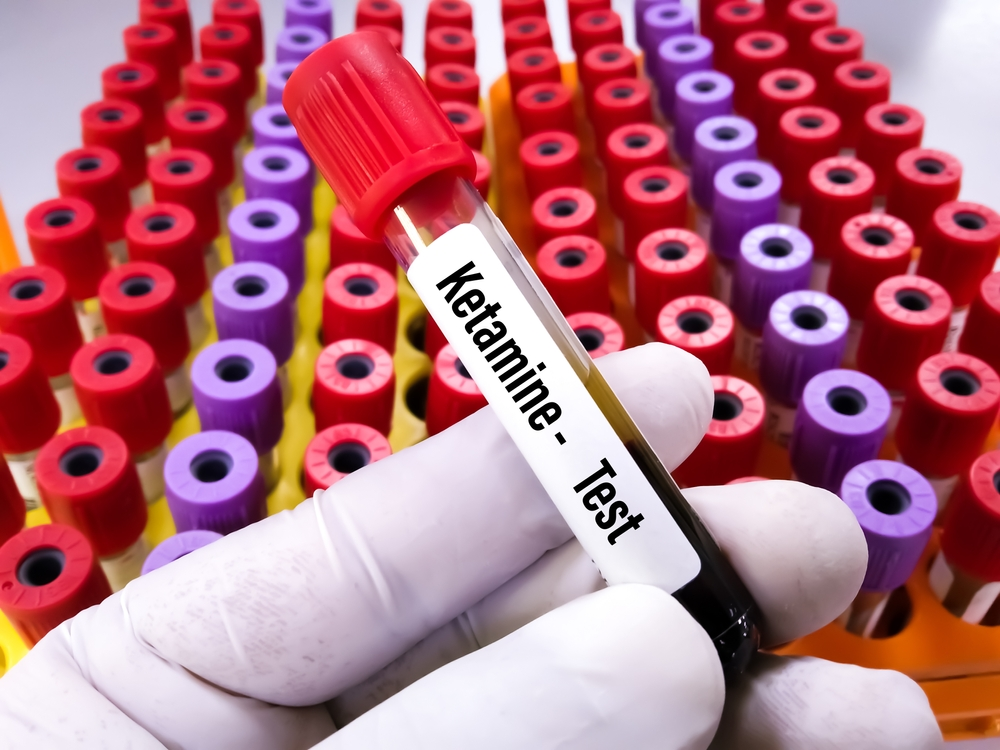How Long Does Ketamine Stay In Your System?
Ketamine is a powerful dissociative anesthetic that is often used in veterinary medicine but has become increasingly popular as a recreational drug. Many people who use ketamine may wonder how long the drug stays in their system, especially if they must undergo drug testing.
Ketamine can be detected in the saliva for 24 hours, blood for up to 48 hours, up to 4 days for urine, and hair for up to 90 days.
Ketamine’s Half-life
Ketamine’s half-life after intravenous (IV) administration is around 2.5-3 hours. However, the half-life may vary depending on the method of administration. It’s worth noting that while the half-life of ketamine may provide some indication of how long the drug will remain in your system, it’s not the only factor to consider when evaluating the duration of ketamine’s effects or detection time. Other factors, such as the amount of ketamine taken and the frequency of use, can also influence how long the drug remains in your system.

How Long Ketamine Stays In Your System
Ketamine can be detected in various types of tests for different periods. The detection time can vary based on factors such as the amount of ketamine used, the frequency of use, individual metabolism, and the type of test used.
- Blood Test: Ketamine can be detected in the blood for up to 48 hours after use.
- Urine Test: Ketamine can be detected in the urine for up to 4 days after use, although heavy or chronic use may result in a longer detection window of up to 2 weeks.
- Saliva Test: Ketamine can be detected in the saliva for up to 24 hours after use.
- Hair Test: Ketamine can be detected in hair for up to 90 days after use.
What Affects How Long Ketamine Stays In Your System?
Several factors can influence how long Ketamine remains in your system, including your body weight, metabolism, dosage, frequency and duration of use, and the route of administration. Other factors such as age, liver and kidney function, and overall health may also play a role.
- Dosage: The amount of ketamine consumed can affect how long it stays in your system. Higher doses can take longer to metabolize and eliminate from the body.
- Frequency of use: Frequent or chronic use of ketamine can lead to accumulation in the body, increasing the time it takes to eliminate the drug.
- Method of administration: Intravenous administration, for example, can result in a shorter elimination time than intramuscular administration.
- Metabolism: Individual metabolism can also affect ketamine to be eliminated from the body. People with a faster metabolism may eliminate ketamine more quickly than those with a slower metabolism.
- Body weight and composition: People with higher body weight may take longer for ketamine to eliminate the drug. Additionally, people with a higher body fat percentage may slowly stop the medicine.
- Hydration levels: Adequate hydration can help speed up the elimination of ketamine from the body. Conversely, dehydration can slow down the elimination process.
- Kidney and liver function: Kidney and liver function can affect how quickly the body eliminates ketamine. The impaired function of these organs can prolong the elimination time.
- Drug interactions: Other drugs or substances taken alongside ketamine can affect how long it stays in your system. For example, drugs that affect liver function can slow the elimination of ketamine.
- Age: Age can also affect how long ketamine stays in your system. Older individuals may eliminate the drug more slowly than younger individuals.

How Long Does Ketamine’s High Last?
The euphoric effects of snorted ketamine typically peak between 15 and 20 minutes after inhalation. If you take a tablet, you may have to wait about 20 minutes before feeling its effects. When injected into a vein, ketamine’s effects are felt almost instantly.
The duration of ketamine’s after-effects is dose-dependent, ranging from 30 minutes in the case of low dosages to 1 hour in the case of large ones.
The results may include the following:
- Happiness, ease, and contentment
- Disconnection from one’s physical self and the world around you
- Hallucinations
- Disrupted spatial and temporal senses
- Suppress your pain perceptions
Ketamine Withdrawal Symptoms
Excessive ketamine use can have severe physical and psychological effects on an individual’s life.
If you regularly use ketamine, your body can being tolerate the substance, and overtime, you’ll need more to feel its effects. If you suddenly stop using or cannot obtain the drug, you may experience withdrawal symptoms. These symptoms can range from unpleasant to severe and may include mental health issues such as anxiety, depression, irritability, and paranoia.
Some users may also experience physical symptoms such as abdominal cramping, impaired vision or hearing, bladder discomfort, increased heart rate, excessive sweating, and intense cravings for the drug. Sometimes, ketamine withdrawal can also lead to suicidal thoughts or psychosis. It’s essential to seek professional help if you are experiencing withdrawal symptoms or struggling with ketamine use.

Contact Louisville Recovery Center
At Louisville Recovery Center, individuals can find a comprehensive treatment program tailored to their unique needs. Our experienced professionals understand the complexities of ketamine addiction and provide personalized treatment plans that address the root causes of addiction.
Our treatment programs include therapy, medication-assisted treatment, support group, and other healing modalities. If Ketamine addiction is affecting you or someone you know, do not hesitate to contact us for any assistance. Remember, recovery is possible with the proper support and guidance. Let Louisville Recovery Center guide you toward a healthier and happier life.







